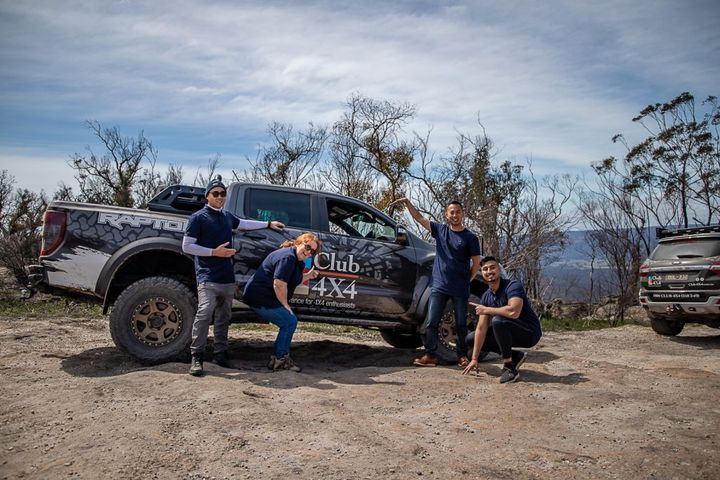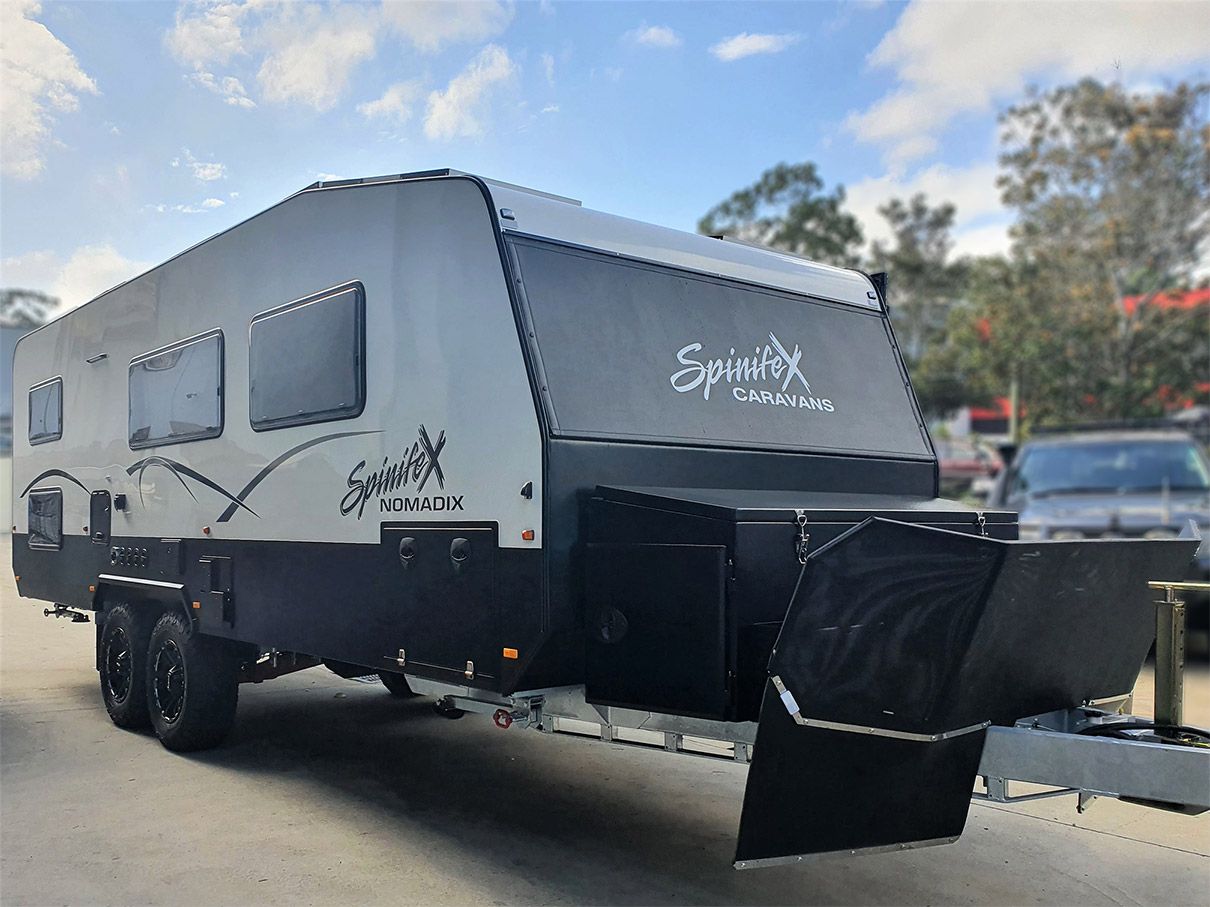At Club 4X4, we are enthusiasts ourselves, so ensuring our staff are given the opportunity to get out and get off-road is vital to our business. And our customers see the benefit in a more enjoyable, intellectual 4X4 discussion that is less ‘insurance’ focused.
Just last weekend, a number of our team attended a 4WD weekend that we organised, which included an offroad 4WD course with Getabout 4WD Training on the Friday for those that haven’t done one. In the mix was a very experienced off-roader, and even they raved about what they had learned during the course.

Some of our team posing in front of the Club 4X4 Raptor…
Anyhow, the discussion with this staff member over the weekend made me realise that even experienced off-roaders can get plenty out of a Four Wheel Drive course:
- Learn about modern vehicles and new technologies
- Learn the latest techniques
- Save on your insurance
Learn about modern vehicles and new technologies
Lets face it – most modern 4X4’s have IFS rather than a live axle. This means that they behave differently off-road than older vehicles like a GU Patrol or other live axle vehicles. They’ve also got a whole heap of technology, including a factory rear locker in some cases, as well as traction control, and even electronic traction modes that alter the way the car revs, sensitivity of the traction control, and more.

A group of people in a room Description automatically generated
John from Getabout running through 4WD theory…
While an experienced four wheel driver will understand the importance of picking a line, assessing the obstacle to be traversed and wheel placement, doing a 4WD course will cover off how these technologies work, and how best to use them in a modern vehicle – for example how you’ll treat wheel spin differently in a modern vehicle vs and older one.

A group of people standing in a room Description automatically generated
John explaining tyre pressures and their impact on the contact patch of the tyre…
The other great thing about a 4WD course is also that they delve into the mechanics of how a 4WD works and how it applies drive to your wheels, giving you an in-depth understanding of what is happening should you lose traction and/or momentum. Knowing what is going on is key to being able to navigate the situation. And choosing the ‘off-road’ setting you are using off-road can have a significant impact in how the vehicle responds. A 4WD course provides an exceptional and safe environment to test and understand your new vehicle’s capabilities.

A group of people standing next to a car Description automatically generated
Running through key components of the 4X4, including oils, fluids, electricals, filters, etc.
Learn the latest techniques
4X4 recovery gear is constantly evolving and changing, and so are the techniques. There are a myriad of ways to recover your 4X4, from snatching to winching, recovery boards, and more. And on top of this, there are new technologies like soft shackles, recovery rings etc. Doing a 4X4 course will generally expose you to some of the latest techniques to recover if you get stuck, including the hierarchy of recovery, which helps you manage the risk of injury with damage to the environment, and success in recovering if you get stuck.

A car parked on pavement near a forest Description automatically generated
Practicing using Recovery Equipment
You’ll also get more exposure to guiding people through obstacles, which is pretty important if you need to navigate a rock step, deep ruts, or even mud. And you’ll learn how to assess the risk appropriately so you can make the right decision on how to proceed.

A group of people walking down a dirt road Description automatically generated
The team got to enjoy some pretty spectacular views putting their newly learnt skills to use!





